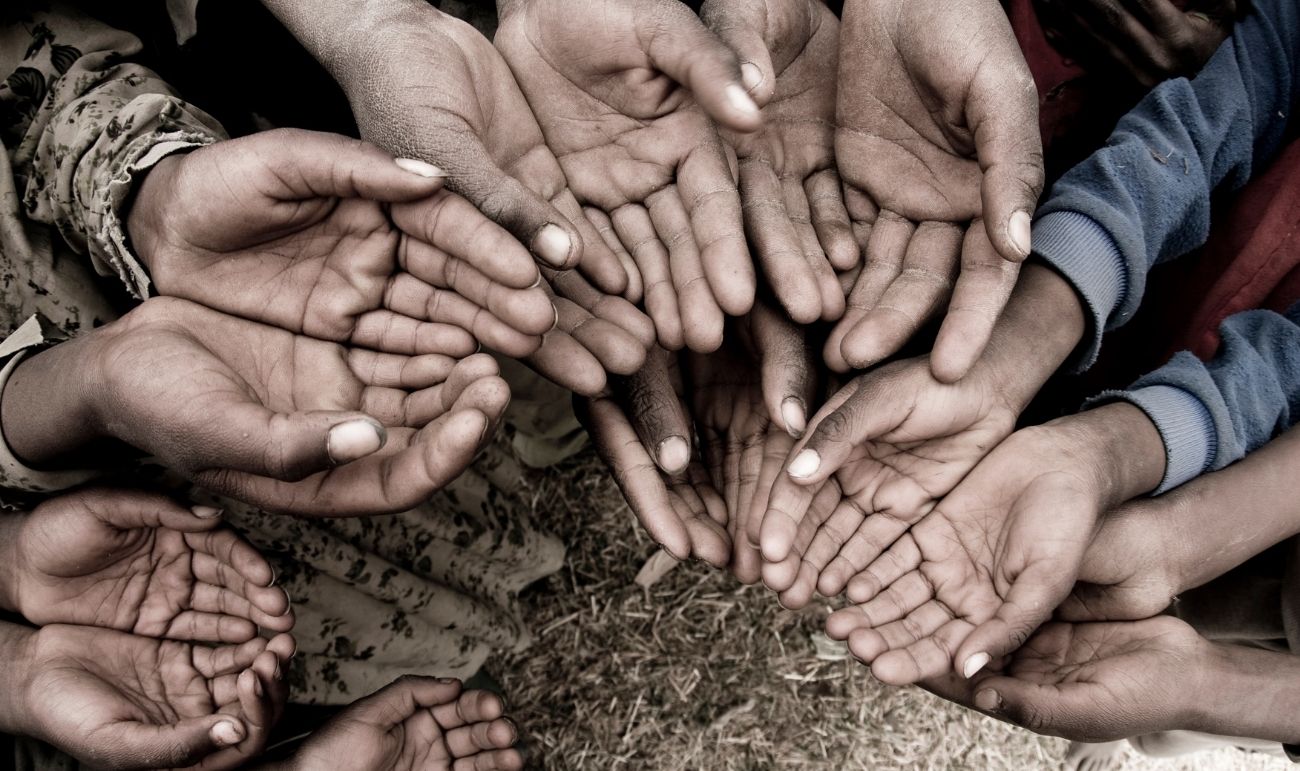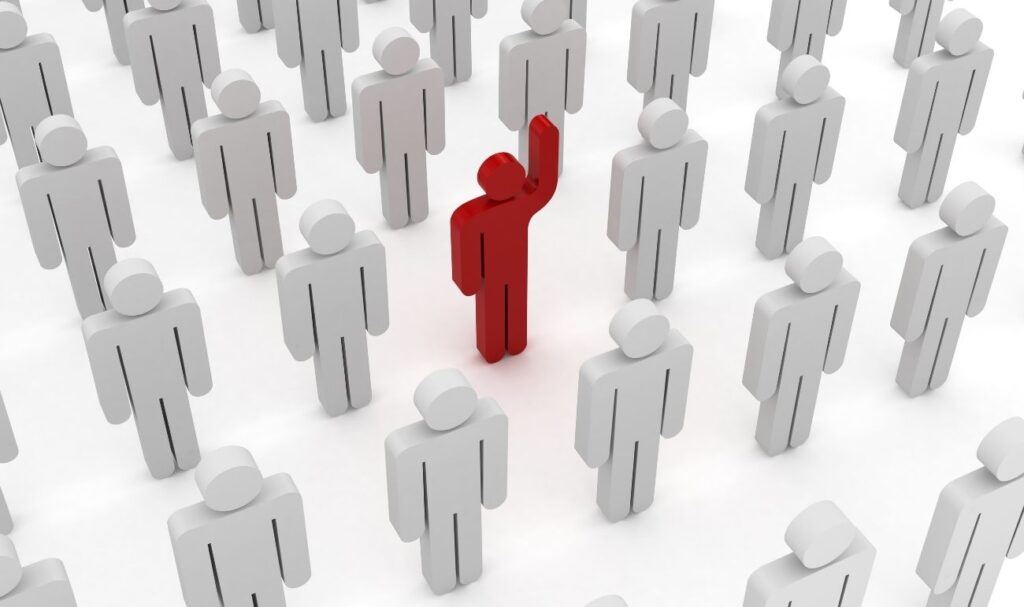
Programmed for Poverty
After dedicating countless hours to audiobooks and YouTube videos, I’ve come to a conclusion about the stark difference between those who achieve success and those who don’t. It all boils down to our perception of reality. I will emphasize repeatedly that perspective matters, because if our subconscious perceives something as unattainable, it will remain as such. Even when a task is as simple as ABC, we can inadvertently block our own progress. The human brain conceals many secrets; we fail to fully comprehend its potential and, as a result, underutilize it. It may seem that there are boundless possibilities ahead, but living with self-imposed barriers and false beliefs can transform our greatest asset, our brain, into a prison rather than a source of liberation.
However, it’s important to note that even the most positive beliefs alone won’t guarantee success. If you’ve grown weary of online gurus preaching the power of positive thinking and have reached the realization that the right mindset and perspective are insufficient, you might be wondering what’s missing. Dreams, perspective, and visualizations won’t lead us to our goals if they aren’t backed by action and knowledge in the relevant field. You can dream and map out your plans for a lifetime, but without taking concrete steps toward your dreams, you’ll remain in the planning stage. Eventually, you may feel regret and bitterness because you’ve spent years believing that success is within reach, reciting affirmations and visualizing your desires daily, yet nothing changes. It’s even possible that you’ll begin to feel deceived and manipulated, as if something was supposed to work, but it hasn’t. Success is not solely achieved through a shift in your thought patterns; it’s a potent tool, much like any other, that remains dormant unless you put it to work.
Now that you’ve made an effort to reprogram yourself for success, it’s time to take action! If you’re intent on changing your way of thinking, begin by recognizing how you’ve been conditioned since birth. To alter this programming, you must first understand it.

The Education System: Slaves Factory
In our country, despite leaving school with a high level of knowledge, the education system has never been at its best. School should be a place where we acquire knowledge from textbooks and gain practical insights about the world and ourselves. Specialization is chosen during our teenage years, following a general education curriculum. This approach theoretically allows us to explore a wide range of fields and make informed decisions about our interests. After choosing a specialization, we should be well-prepared to practice our chosen profession and navigate life beyond the school gates.
Think back to the day you completed your school journey, started your first job, moved out of your home, and paid your first bill. For me, it was a traumatic awakening, a stark contrast between what I’d learned and what I faced in daily life. I knew the intricacies of paramecium structure, yet I had no idea about practical financial matters, economics, loans, or the tax system in Poland. I was well-versed in Picasso’s work phases but clueless about essential life skills. It seemed that the world I’d learned about for most of my life was worlds apart from the reality I encountered.
At school, we receive an education tailored for the economic middle class. We’re taught to collect diplomas, secure a stable job, start a family, take out loans, work diligently, save for retirement, and adhere to the status quo. Simultaneously, we’re told that we can achieve anything, be whoever we want, and work wherever we desire. So, we end our education with optimism, believing that greatness awaits. However, we often end up as programmed drones, ill-equipped to fulfill our dreams and lead prosperous lives. The two narratives are at odds, but we are not informed of this conflict. When we don’t achieve success, we tend to blame ourselves because we’ve been taught that we should succeed, given the advice we’ve received.

During the industrialization of Europe, it became evident that to maintain factories, production processes, and machinery, people were required. Not just any people, but those willing to follow orders unquestioningly, do as they were told, and, in return, receive a guaranteed income that provided security and peace.
If you believe that your country’s education system is designed to nurture citizens, equipping them with the knowledge to lead prosperous lives, think again. Free education is designed to program society to behave as expected and required by the country, pushing individuals to become part of the middle or working class. Those who are more educated and privileged ultimately benefit from your labor. This deception isn’t limited to Poland or Europe; it’s a global phenomenon. So, what can you do? Educate yourself in economics, finance, psychology, health, nutrition, and various other fields that will help you achieve your dreams. Fortunately, we now have unprecedented access to resources like books and information on the internet. A shift in perspective is necessary, but it’s equally important to take action and begin your education rather than waiting for it to come to you someday.
If you have doubts about my theory, reflect on whether, during your time in school, you were taught to think critically and independently, challenge established patterns, provide value to your community, and manage your finances. Consider how many lessons focused on politeness, obedience, conformity, and imitating others, rather than encouraging independent and creative thinking, forming opinions, and pushing beyond the boundaries.
As the saying goes, “As the twig is bent, so grows the tree.” Children, in their young and teenage years, are highly receptive and impressionable, shaping their future adult behaviors based on their experiences and upbringing. This doesn’t mean we should despair; any programming process can be reversed through reprogramming. The first step involves acknowledging the error, followed by reprogramming that teaches us alternative behavior patterns we can subconsciously apply in the future.
It’s crucial to note that the educators aren’t part of some covert government conspiracy. They, too, grew up within the same system and were programmed accordingly. They pass on the knowledge they believe to be the best way of life. They don’t intend harm, but they inadvertently convey outdated and harmful patterns, unaware that they themselves have been manipulated and programmed.
Fortunately, some individuals have emerged from this educational system, breaking free from the cycle. I’m not the only one; if you’re reading this article, you’re searching for answers because you consciously or subconsciously sense that something isn’t right. Appreciate this insight, as many of your peers may never reach such conclusions throughout their lives.

Ailing Roots: The Impact of Ill Belief Systems
When we talk about teachers, it’s essential to acknowledge the roles of parents and friends in our lives from an early age. Both of these groups convey their beliefs, often more unconsciously than consciously, to those under their care and within their social circles. Children absorb, observe, and learn from their environment, often adopting these behaviors as the norm.
For example, in my family, there was a belief that a wealthy person is inherently a bad person who exploits others. Since childhood, my mother advised me to find an honest, financially modest husband, as only such a husband would truly love and respect me. Consequently, for a significant part of my life, I operated under this belief. I categorized wealthy individuals as threats to my future happiness, viewing them as unscrupulous, deceitful, and disrespectful towards others. Later, I discovered that a person’s financial status has no bearing on their character, integrity, or capacity for love.
My father used to say that it’s better to have a secure job with low stress and minimal responsibility, even if it means lower pay. He believed that avoiding stress was paramount. Regrettably, he failed to consider that, for much of my childhood, I watched him work three shifts, returning home fatigued, only to eat and sleep before heading back to work. In his limited free time, he discussed financial struggles with my mother. Reflecting on this now, I wonder how he didn’t recognize that the stress of financial insecurity far outweighs the challenges of making decisions at work and taking responsibility. This example illustrates how childhood beliefs and patterns can restrict our lives and lead to unhappiness. We aren’t typically taught critical thinking or encouraged to question the norms of everyday life. Consequently, we often blame ourselves for our failures, living within these self-imposed limitations.
These same examples can be multiplied with respect to our friends, neighbors, and the community in which we live. When we’re surrounded by these influences, we observe, learn, and assimilate their behaviors, beliefs, and ways of functioning. This is why the saying “show me your friends, and I’ll tell you who you are” is remarkably accurate.
If you’ve been raised with the belief that money is inherently bad, that it corrupts people, that it leads to problems, that it’s challenging to earn, and that the only way to obtain it is through dishonest means, you’ve been programmed to live in poverty. Statistically, most of us don’t surpass the socioeconomic status and opportunities of the environment or social class in which we were raised. While some individuals break free from these limitations, changing beliefs and reprogramming oneself is a challenging and time-consuming process, which is why only a few embark on this journey. Additionally, limited self-awareness and awareness of one’s surroundings make it difficult to recognize such patterns.

Influenced by the Media: How Content Shapes Our Beliefs
Each of us is exposed to content from various media sources, including TV, the Internet, books, and social platforms. We consume these contents for countless hours and, often without realizing it, internalize the patterns presented as acceptable. Have you ever noticed how frequently you encounter an evil character in books or films who becomes corrupted by power, money, and greed, while good protagonists are often portrayed as wealthy and benevolent?
In many narratives, the positive character typically emerges from a modest background, possessing nothing but a mission to save the world and love in their heart, often pitted against a rich, greedy, and narcissistic antagonist. Consequently, it’s not surprising that we subconsciously associate wealth with negative qualities. For instance, consider Aladdin, a character many of us were captivated by as children. He is portrayed as the only pure-hearted person in Agrabah, fighting against the evil and powerful Jafar, ultimately winning the heart of the princess.
Now, let’s analyze this from an adult perspective. Aladdin is a homeless boy who resorts to stealing to survive. He magically wins the princess’s heart, while the other princes vying for Jasmine’s hand are depicted as self-centered, foolish, and cruel. What subliminal message are we absorbing? The poor are virtuous, and the rich are spoiled. It’s no wonder that these negative beliefs about money persist into adulthood.
Consider another example from childhood: playing Robin Hood. Many of us enjoyed this game, with one friend taking on the role of Robin Hood, who robs the wealthy and unjust rulers and gives to the poor. Now, as adults, let’s examine this scenario. You live in a prosperous neighborhood, and a gang of thieves robs you and your neighbors because they believe you achieved your status through deception and exploitation. They see themselves as the hand of public justice, redistributing your wealth to their friends from the less fortunate neighborhood. This interpretation may sound absurd, but it underscores how we often expose our children to such content.
This doesn’t mean we should stop watching or reading these narratives, discard our TVs, cut off the Internet, or destroy our phones. Instead, we need to be aware of the underlying themes and patterns in the content we consume and avoid accepting them as reality. I still enjoy watching Aladdin and even went to see Disney’s new version in the cinema, but that doesn’t mean I necessarily endorse or identify with all the values conveyed therein.
Capitalism: The Perils of Consumerism
As we navigate through life, we find ourselves subjected to programming from various sources, including our homes, schools, workplaces, and communities. This programming often leaves us feeling unhappy and trapped in mundane, repetitive routines. Instead of seeking the root causes of our discontent, we often turn to material possessions as a form of compensation.
In the 2000s, it became trendy to say that retail therapy was a quick fix for the blues. We live in an era where companies compete to persuade us that their products hold the key to solving our problems. Many of these highly effective marketing campaigns employ psychological techniques, manipulation, and subliminal communication. Experts work tirelessly to ensure that their advertisements target the specific psychological triggers that override rational thinking, compelling us to act – to buy products that promise to make us more appealing, confident, or happy.
One of the most intriguing shifts in the cosmetics and beauty industry was the narrative change from “do it for men” to “do it for yourself.” The message shifted from external validation to self-empowerment. However, we should be aware that clothes, diet pills, and cosmetics cannot significantly boost our self-confidence and self-esteem. At best, they may enhance our external appearance while leaving our inner feelings unchanged.
Moreover, if we lack inner strength, charisma, and positive energy, even the most beautiful attire won’t hide the fact that we’re disguising our true selves. People can often sense something is amiss, and this can lead to an incongruence between our external appearance and our inner authenticity.
Media often extols the virtues of living in the moment, cherishing the present. Yet, if not interpreted correctly, this philosophy can lead to poor financial choices. Living from paycheck to paycheck, or even accumulating credit card debt in the pursuit of momentary pleasures, can set one on a path of spiraling consumerism and financial instability. This often culminates in a scenario where individuals are locked in jobs they dislike but are compelled to continue working to pay off their mounting debts.
Truly living in the moment doesn’t equate to reckless spending or financial irresponsibility. It should be about appreciating the present while making wise financial decisions.

So, what can you do when you realize you’ve been programmed to accept poverty? It’s time to reprogram yourself.
- Read and listen: Knowledge is power. Fill your mind with valuable content. Much of it is freely available on the internet, and you can also share books and audiobooks with friends or explore free content on platforms like YouTube or Spotify.
- Change your environment: Surround yourself with people who align with your goals. Engage in conversations, seek opportunities to work with them, and build meaningful connections. Choose individuals within your reach who can provide valuable insights and support your journey.
- Learn, plan, and take action: Acquire knowledge systematically, develop plans, and take consistent action. Remember that success is not an overnight phenomenon; it requires patience and perseverance.
If you’re interested in exploring the topic of limiting beliefs and wealth accumulation, I recommend watching an episode on the Emocjonalne youtube channel that discusses finance from a therapeutic perspective.

Organize your life.
The first publication in the Untold product series, created to share methodology for organizing everyday life, cultivating systematic discipline, and developing proper habits. Drawing from the author's experience, knowledge, beliefs, and commonly available coaching tools, she aims to inspire you to take action and present you with a straightforward approach to achieving fulfillment and building self-esteem. Written in a simple way, it contains examples from everyday life, practical tips, exercises, and beautiful graphics. Available in e-book and audiobook.




Leave a Reply